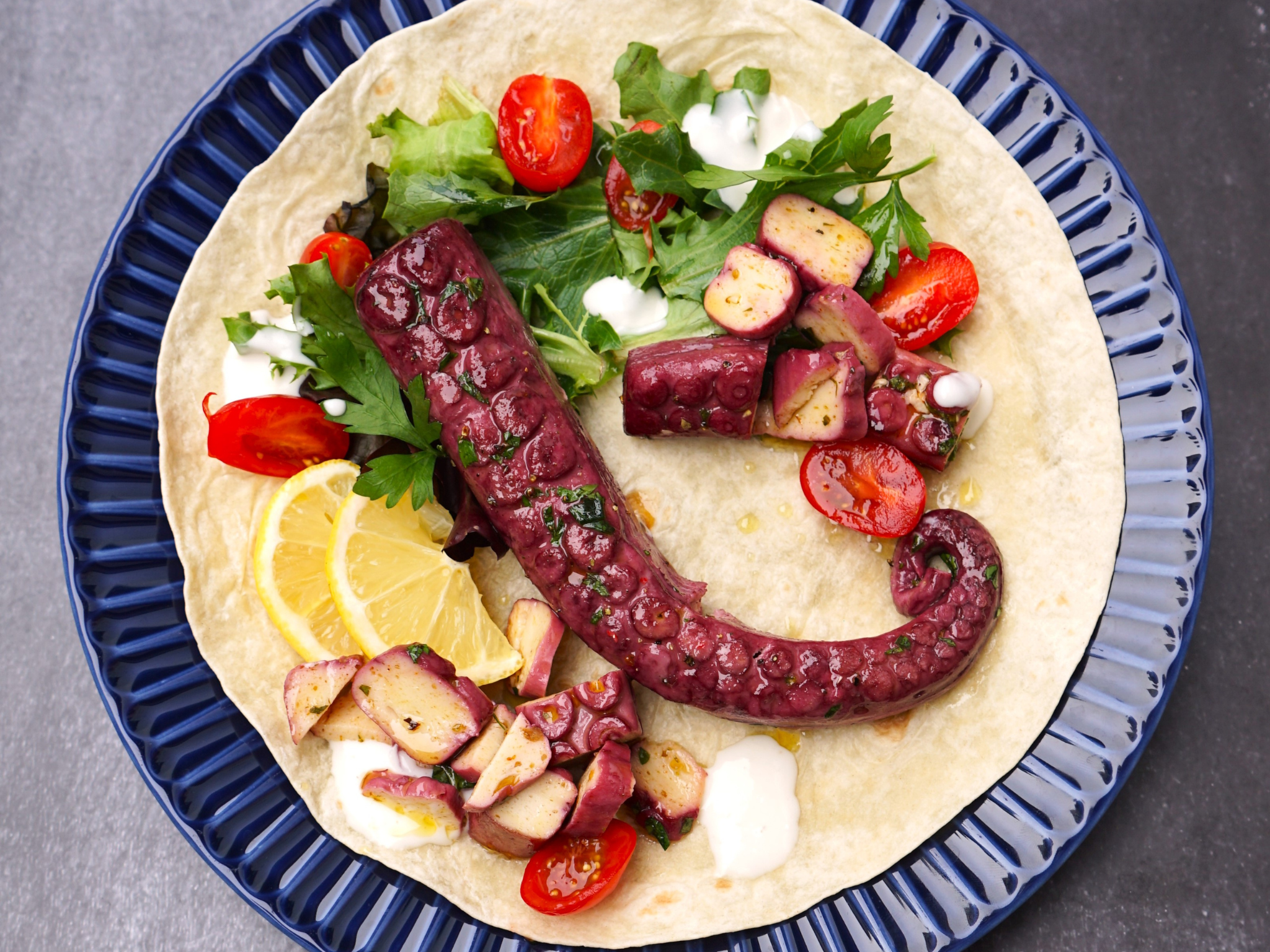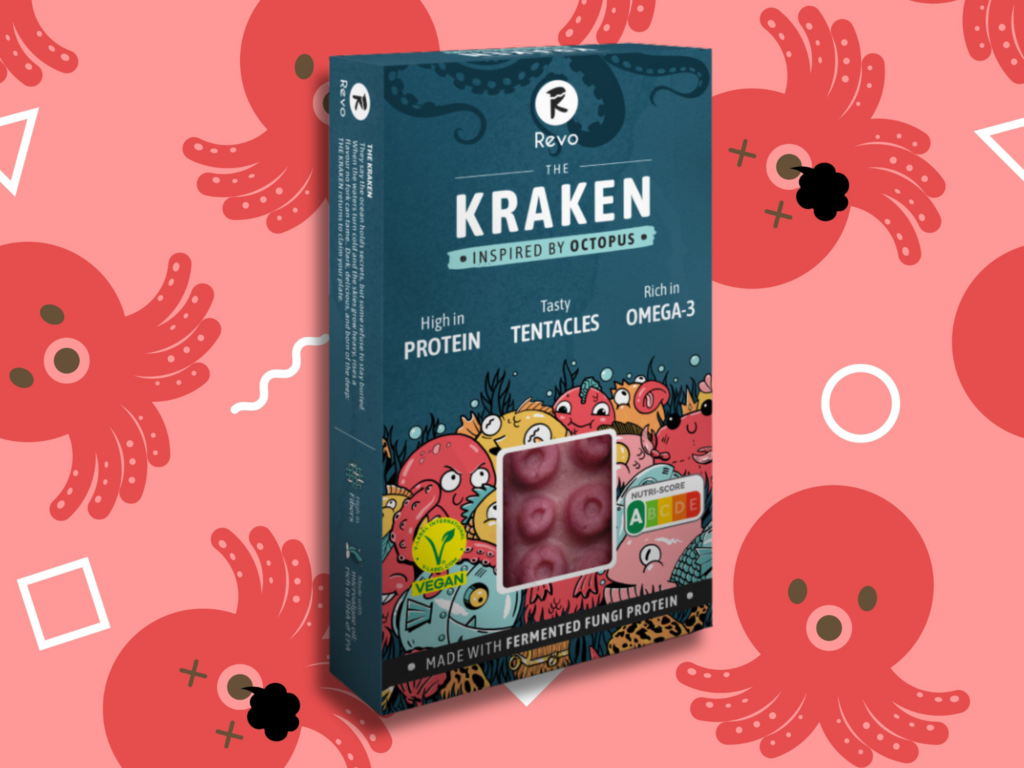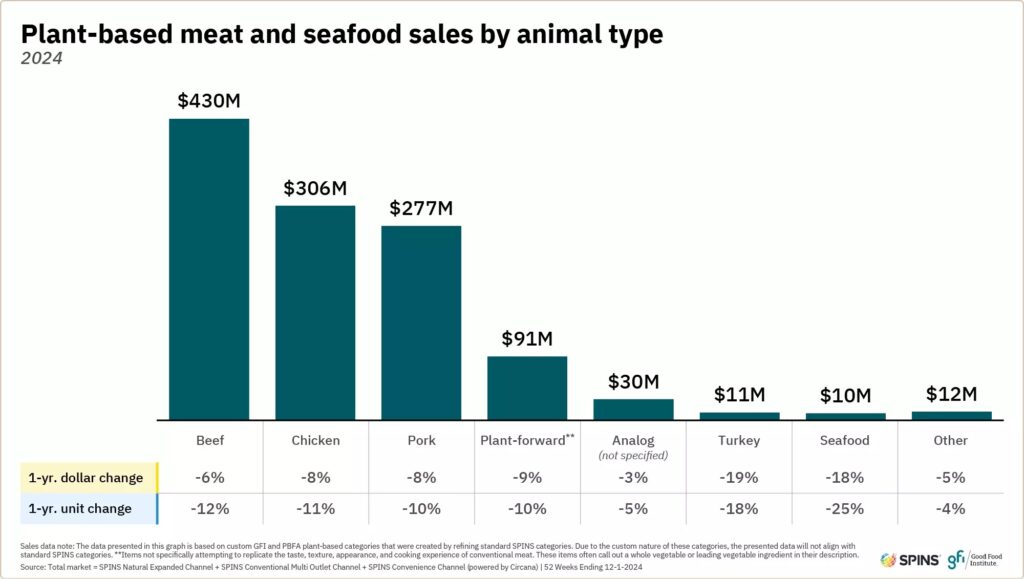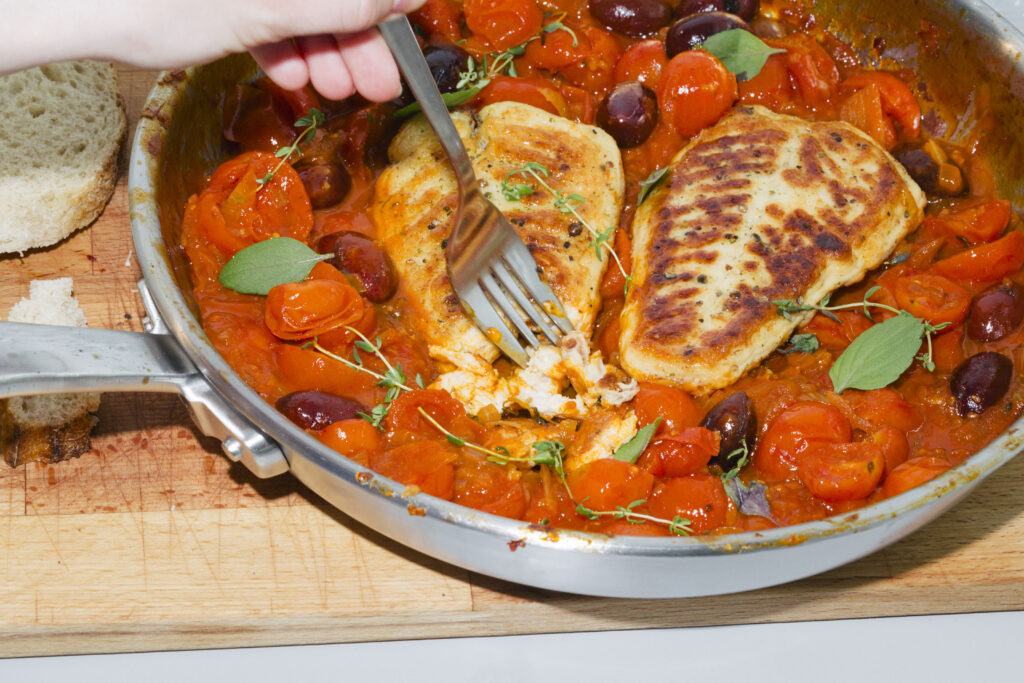
Austrian mycoprotein player Revo Foods has re-released its 3D-printed octopus product, The Kraken, as a permanent offering after receiving “overwhelming demand”.
Robin Simsa and his team get four to five messages every week about a single product. Revo Foods may be selling a range of mycoprotein-based seafood alternatives, from salmon to black cod, but none of its innovations have attracted as much fanfare as the vegan octopus tentacle it released last year.
Titled The Kraken, the hyper-realistic alternative was a limited-edition release because Revo Foods thought it was “too niche” for mass production. The first batch sold out within 48 hours.
In the months that followed, the startup churned out several new products, but customers, chefs and retailers alike inundated it with hundreds of requests to re-launch the octopus.

“Releasing the product as a limited edition in March 2024 was more of a fun little project. We didn’t expect the amount of requests we received afterwards,” says Simsa, the company’s founder and CEO. “At the beginning of the year, we decided to bring it back permanently.”
Described as a complete protein, The Kraken is characterised by a true-to-life tentacle shape, visible suckers, and a chewy texture. It’s made using mushroom mycelium at Revo Foods’s production site in Vienna, and is available across Europe.
“The Kraken is a fun, niche product, so [it’s probably not for every supermarket shelf,” says Simsa. “However, we sell through our webshop all over Europe, with Billa in Austria (part of Germany’s Rewe Group), delivery services Gurkerl.at, kokku.de, knuspr.de, and with distributors in Italy, UK, France and Spain.”
Why Revo Foods created a vegan octopus alternative
Just like its other vegan seafood products, Revo Foods leverages its patented 3D extrusion process to produce The Kraken. This continuous manufacturing technology eschews the high-heat treatment common in other food production methods, and seamlessly integrates fats into a fibrous protein matrix.
It allows products to preserve the nutritional qualities of the raw ingredients, while providing a satisfactory taste and texture. Thanks to the mycelium, the octopus alternative has a complete amino acid profile, with 6.3g of protein per 100g.

It’s also high in fibre (7g per 100g) and omega-3 fatty acid content from DHA- and EPA-rich microalgae, giving the product a more similar nutritional profile to conventional seafood. The Kraken has a Nutri-Score rating of A, which will appeal to the 51% of Europeans looking to eat healthier food this year.
The product can be eaten raw in a salad, though Revo Foods says frying it for pulpo-style dishes releases the best flavour. Octopus is a delicacy and common food ingredient in many countries, from Spain and Italy to Japan and Turkey, where it’s used in dishes like polbo á feira, meze, sushi and carpaccio.
Octopus farming is considered highly unethical and planet-harming. Globally, we eat 350,000 tonnes of the mollusc every year, but overfishing has led to a decline in global octopus landings for several years now. Still, producers in several countries are attempting to build industrial-scale octopus farms to meet global demand, with Spain’s Nueva Pescanova facing fierce backlash for its effort.

With nine brains, octopuses are a highly intelligent, sociable and complex species. In fact, they’re considered sentient creatures by countries like the UK, which joined Switzerland, New Zealand and the US in outlawing the act of boiling them. In fact, in the latter country, the states of Washington and California have banned octopus farming.
Being carnivorous, octopuses need fish and other seafood products – like fishmeal or fish oil – in their diet, which are still frequently harvested from the ocean. It takes about 3kg of feed to produce 1kg of octopus, a highly inefficient use of resources. The 2020 Oscar-winning film My Octopus Teacher shed light on the similarities between humans and octopuses, raising awareness on a mainstream level.
Revo Foods outperforms 2024 revenue in six months

Revo Foods is working on scaling up its production capacity for The Kraken over the next few months. It’s part of its wider expansion plan, which has been supported by an ongoing crowdfunding round that has brought its total raised to €11M.
“We’ve already raised over €1.5M since the spring,” says Simsa. “We’ll use these funds to strengthen our distribution and advance our 3D structuring technology. We recently implemented a new extrusion system in our machines, which improves the output by 50% while drastically cutting the production waste.”
Vegan seafood is still a highly niche sector, making up a fraction of the conventional seafood market. In fact, in the US, it only accounted for 0.8% of retail sales of plant-based meat in 2024, falling by 18% to $10M. Several startups have been forced to cease operations recently, including Ordinary Seafood, New Wave Foods (whose IP is now part of Bayou Best Foods), and Olala.

That said, Revo Foods seems to be doing well. It has launched two new product formats this year, and Simsa has teased another “that goes in a completely different direction” in a couple of weeks’ time.
One of its newest innovations was The Prime Cut, a product it has internally dubbed “tofu 2.0”. The mycoprotein product is not meant to be a seafood alternative; it is designed to stand apart as a nutrition-forward protein that offers consumers something new.
“The Prime Cut is right now rather niche. Many people ask: ‘Why do these products need to resemble meat/seafood?’, but this also helps consumers get a point of reference,” says Simsa. “The Prime Cut is a very ambitious product and sells well in some markets, but on a greater [scale], these types of products need more time to establish themselves.”

Last month, Revo Foods went international through a partnership with Slovenia’s Juicy Marbles, which introduced a whole-cut cod alternative using the former’s technology. “Juicy Marbles built an amazing distribution system in the US, together with a great brand,” he says.
“I think it’s smarter to work together with partners that are stronger in some areas, than doing everything by yourself. So we do not plan to enter the US directly with our own brand in the near future, but rather want to collaborate with Juicy Marbles on this.”
Revo Foods’s products are already available at over 1,000 distribution points in Europe, and it plans to be profitable by 2026. “In the first half of 2025, we already made more revenue than in all of 2024, so the trajectory looks positive,” says Simsa.
The post Fan Favourite: As Sales Soar, Revo Foods Brings Back Hyper-Realistic Vegan Octopus appeared first on Green Queen.
This post was originally published on Green Queen.